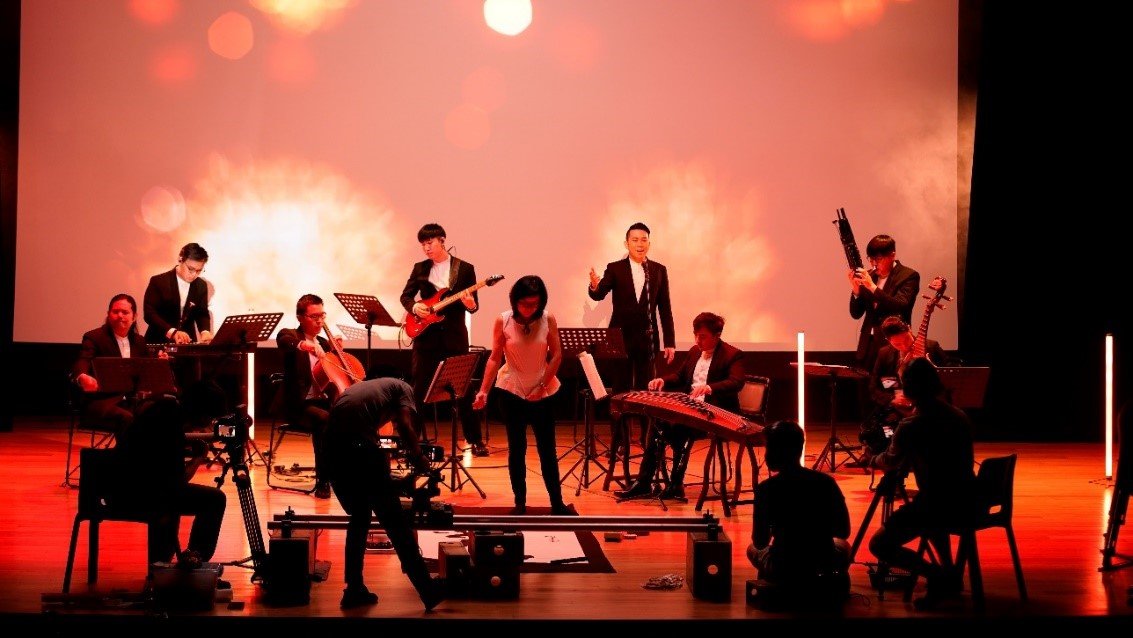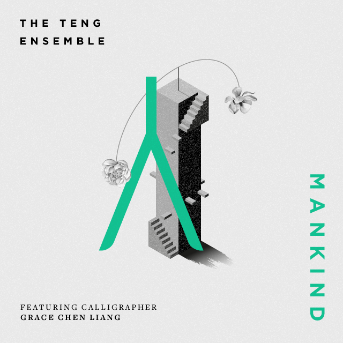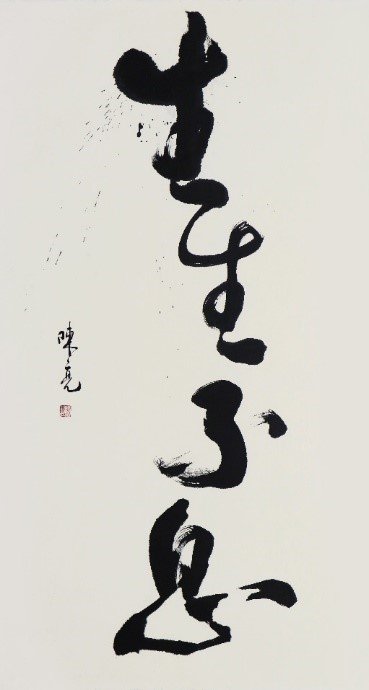The TENG Ensemble Unveils Heaven, Earth, Mankind and Unity (天地人合) - An Extended Play and Music Video Suite Release that Bridges Fusion Music and Chinese Calligraphy
Singapore, 2 September 2021 – This September, The TENG Ensemble (TENG) is set to release a suite of four collaborative works performed with the esteemed Chinese calligrapher, Grace Chen Liang. The first movement, Heaven (天), will debut on TENG’s social media channels on Saturday 4 September 2021 at 12 pm – with the subsequent releases occurring at 12 pm every Saturday after. These pieces will also be made available as an extended play (EP) from Friday 24 September on most digital music service providers which include, but is not limited to, Spotify, Apple Music and YouTube Music. Audiences can expect a unique artistic experience as Chen Liang’s immaculate brush strokes move with the ebb and flow of TENG’s signature sound. Furthermore, this unique union of sight and sound will be made available to the public audience for the first time since The Gift of Music Gala fundraiser event.
Upon the commencement of the month-long campaign, the public will be greeted with the revealing of the EP’s cover art, which portrays a surrealistic playground with delicate steps and passageways coiling around a monolithic structure - a symbol of roots and tradition. An exquisite balance of opposites exemplifies the work that TENG does, depicting how it achieves equilibrium between its traditional and contemporary influences, the east and the west.
As this release embodies various influences and artistic intent, the following segment aims to delve deeper into the details of the 4 tracks of the EP and their music videos. It will describe the inspiration behind the musical pieces, notable solos, and the intention of Chen Liang’s creations. Lastly, all 4 calligraphy pieces have been sold during TENG’s The Gift of Music Gala fundraiser and Chen Liang has graciously donated some of the proceeds in support of TENG.
Heaven (天) - Based on one of the most influential Tang poems Spring Blossoms on a Moonlit Night (春江花月夜) by Chinese poet Zhang Ruoxu. Describing ethereal scenery, the poem has inspired numerous artworks. This composition also plays with the concept of Yun (韵), an aesthetic fluidity that is often found in traditional Chinese art. Yun is personified in this piece through the abundance of freedom given to the musician to direct the course and flow of the music using invigorating solos. These sections act as a juxtaposition to meter oriented parts in the piece, creating contrasting sections of tension and release throughout, as though depicting floating cosmos that have neither defined shape nor form.
The line written by Chen Liang here was an excerpt from the original poem, “月照花林皆似霰” which illustrates the view of a curving stream within the meadow and moonshine illuminating the grass like a layer of snow – emphasising the beauty and harmony that exists between the heavens and the earth.
Earth (地) – This piece drew inspiration from the traditional Chinese folk tune Zhi Xin Ke (知心客) which can be heard in the Erhu solo. The guitar and the cello form the two unlikely Western instruments that lead the arrangement that sings about the sweetness of nature. The piece features a melodic structure that evokes the feeling of meeting a kindred spirit or loved one. Inspired by the melody, Chen Liang birthed the words The Heart Dances and Leaps (心飞舞) to encapsulate the feeling of one’s heart leaping out in joy.
Chen Liang shares that these words can be considered a contemporary expression and she believes that these simple words give a sense of grounding and relevance in today’s society. Although the words may appear to not have roots in traditional text, its structure was actually inspired by Han Dynasty’s Liu Bang’s poem The Great Wind (大风歌).
Mankind (人) – The Erhu solo piece written by Hua Yanjun, commonly known as Ah Bing, Reflection of the Moon on Erquan Spring (二泉映月) is the melodic inspiration for the third piece of the suite. He became a blind and destitute busker in the later stages of his life, and wrote the piece to illustrate his grief and bitterness due to the severe challenges that came in his life. The thematic material of the piece is split into three phrases; the first phrase is written to be soft and soothing, the second illustrating agitation and aggression, while the third and final phrase evokes feelings of agony and utter despair. TENG portrays its signature fusion style by incorporating a jazz style of Blues into the piece. In the West, Blues are sung laments and the combination of the musical styles, add to the fragility of mankind portrayed in TENG’s interpretation. The fluctuating movements in this piece are profound and philosophical which guides the listener to close their eyes and find the depiction of mountains, waters, skies and earth within the music.
Chen Liang creates Jing Guan (静观)with her left hand, which embodies the contemplation amid an ever-changing modern world through rustic brushstrokes. The work presents the idea of guidance by stillness (静) and observation (观) through the hustle and bustle of mankind in modern day.
Unity (合) - An original composition written for the entire TENG Ensemble. Unity explores the various ebbs and flows of human energy that may take on various forms. This composition drew its inspiration from the legendary Chinese martial Pipa solo, Ambush (十⾯埋伏). The piece was based on the textural aggressiveness of Ambush and unifies the ensemble through the rhythmic, harmonic and melodic elements of the music. The composer uses polyrhythms, constant meter changes, as well as the constant passing of melodic lines between different instruments to show the co-operation within the ensemble. These challenging characteristics make the piece technically demanding and virtuosic. The effects from the electronics enhances the intensity of the music and showcases a fusion of both traditional and contemporary elements.
To Chen Liang, this piece encapsulates the unification of both the musical and calligraphic worlds. The energetic and tenacious nature thus inspired Chen Liang to brush the words Endlessness (生生不息). At first glance, Ambush can be interpreted as a state in war, but from a broader perspective, it can also be the representation of the never ending cycle of collisions between the old and the new. The cycle of growth and development and reincarnation aligns with the philosophy of Laozi’s Dao De Jing (道德经).
— End —
About The TENG Company
TENG is a leading not-for-profit Singaporean arts company that re-imagines the possibilities of Chinese music. Founded in 2004, the company comprises a collective of music educators, scholars and award-winning instrumentalists. TENG’s work draws its influence from the East and the West; and the traditional and the contemporary. 鼟 (pronounced ‘tēng’) – as one of the most complex characters in the Chinese language – is an ancient Chinese representation for the sound of a drum. It is a symbol of TENG’s aspiration to bring cultures together and nurture future generations of musicians and audiences in Chinese music.
For more information, please visit www.thetengcompany.com
For Media Enquiries
(Mr) Benedict Quek
Assistant Manager (Marketing & Development)
Office: +65 6970 0771 HP: +65 8389 1340
Email: marketing@thetengcompany.com










